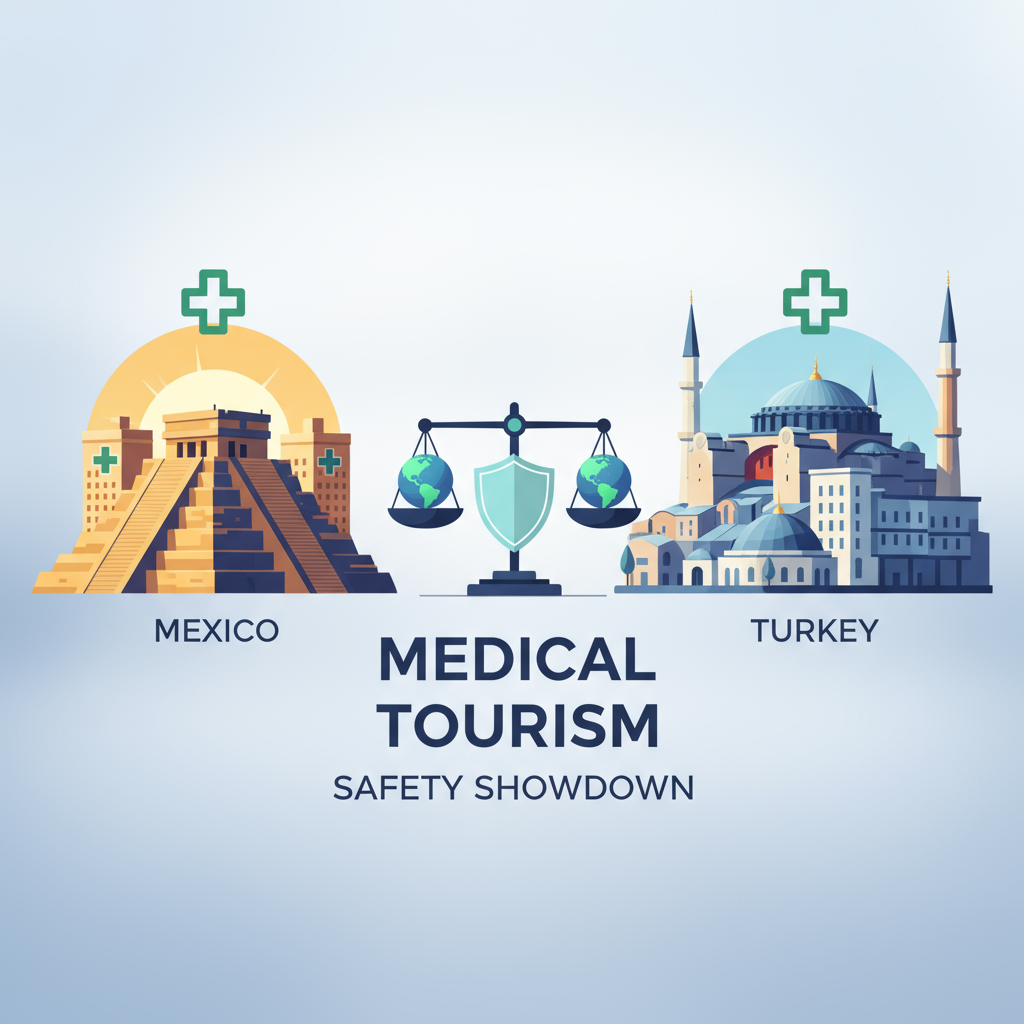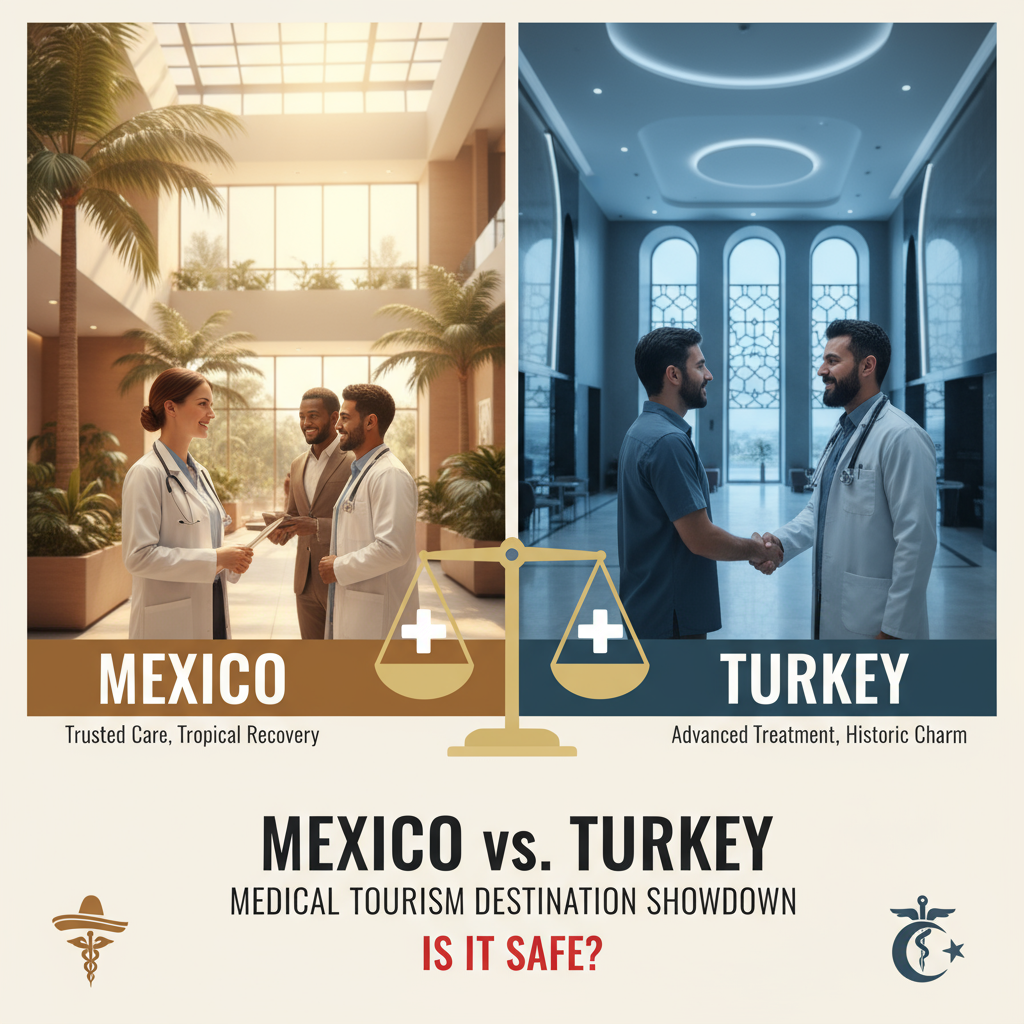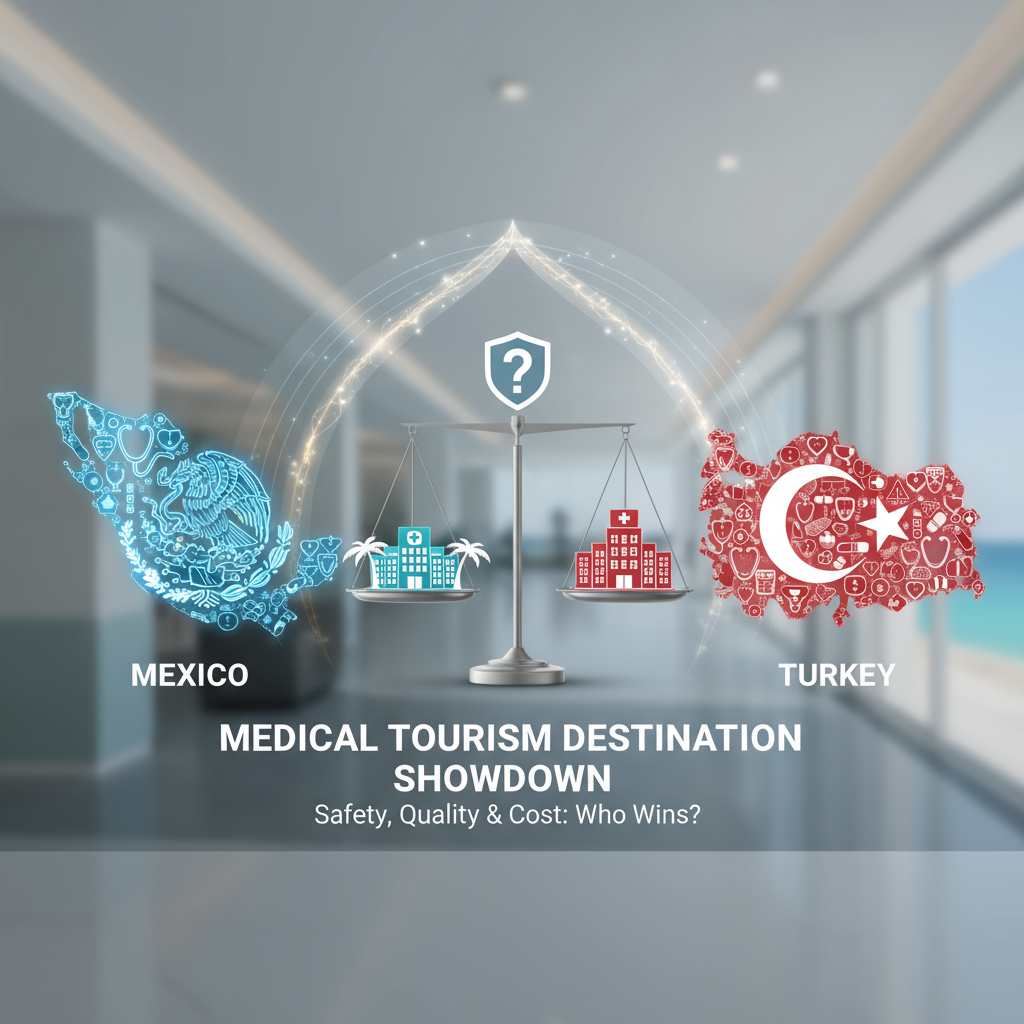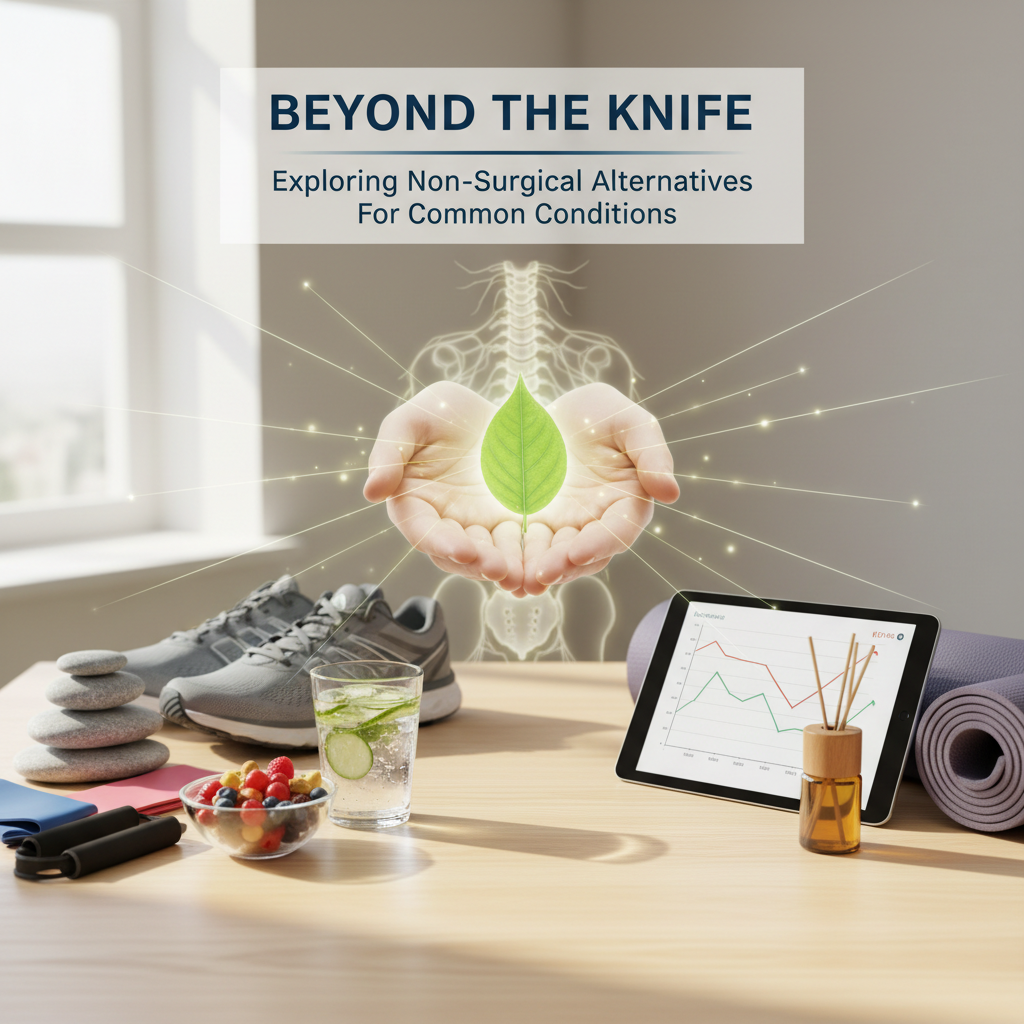Mexico vs. Turkey: A Medical Tourism Destination Showdown
Mexico vs. Turkey: A Medical Tourism Destination Showdown
For individuals facing daunting medical decisions, complex procedures, or prohibitive healthcare costs in their home country, the idea of seeking treatment abroad often emerges as a beacon of hope. This path, known as medical tourism, can feel overwhelming due to the sheer volume of information, the uncertainty of quality, and the logistical hurdles involved. Best Surgery Options is here to empower you with clear, reliable insights and connections to world-class care, ensuring your journey to better health is informed, safe, and successful.



What is Medical Tourism?
At its core, medical tourism refers to the practice of traveling to another country to receive medical care. This can range from elective surgeries like cosmetic procedures or dental work to more complex treatments such as orthopedic surgery, fertility treatments, or even cancer therapy. The definition of what is the medical tourism phenomenon often includes the pursuit of lower costs, access to specialized treatments not available domestically, shorter wait times, or a combination of these factors. Think of it as a patient-driven global healthcare marketplace.
Historically, people have traveled for health reasons for centuries, often seeking natural springs or specific climates. Modern medical tourism, however, is characterized by its organized nature, connecting patients with accredited facilities and highly skilled professionals across borders. The rise of globalization, improved travel infrastructure, and readily available information has fueled its growth, making countries like Mexico and Turkey prominent players in this burgeoning industry.
Why is Medical Tourism Gaining Popularity?
The reasons for the surge in medical tourism are multifaceted:
- Cost Savings: This is arguably the biggest driver. Procedures that cost tens of thousands in the US or Canada can be significantly cheaper in destinations like Mexico or Turkey, even when factoring in travel and accommodation. For instance, a joint replacement might be 70% less expensive in Mexico than in the United States.
- Access to Specialized Care: Some countries excel in specific medical fields. Patients might travel for a unique surgical technique, advanced fertility treatments, or innovative cancer therapies not readily available in their home country.
- Reduced Wait Times: In healthcare systems with long waiting lists (like in Canada or the UK), medical tourism offers a solution for patients needing timely interventions.
- Privacy and Anonymity: For certain procedures, particularly cosmetic ones, traveling abroad can offer a greater degree of privacy.
- Quality of Care: Many top medical tourism destinations boast state-of-the-art facilities, internationally trained physicians, and accreditations that meet global standards, ensuring high-quality outcomes.
Is Medical Tourism Safe? Addressing Common Concerns
The question, "is medical tourism safe?" is paramount for anyone considering treatment abroad. The simple answer is: it can be, but due diligence is crucial. Just like finding a reputable doctor in your home country, researching and vetting international providers is essential.
Concerns often include:
- Quality of Care: Are the doctors truly qualified? Are the facilities up to international standards?
- Communication Barriers: Will there be language difficulties, especially during critical medical discussions?
- Post-Operative Care: What happens if complications arise once you return home?
- Legal Recourse: What are your options if something goes wrong in a foreign country?
- Travel Risks: The inherent risks associated with international travel, especially while recovering.
Mitigating these risks requires careful planning. This is where a trusted partner like Best Surgery Options becomes invaluable. We provide Specialist Matching to connect you with board-certified, accredited doctors, offer Procedure Overviews for full transparency, and guide you through Recovery Guidance. Our Patient Education Hub equips you with the knowledge to make informed decisions, ensuring you understand the risks and rewards.
Mexico vs. Turkey: A Medical Tourism Destination Showdown
When considering where to go for medical tourism, two countries frequently rise to the top: Mexico and Turkey. Both offer compelling reasons, but they cater to slightly different needs and preferences.
Medical Tourism in Mexico
Medical tourism to Mexico is incredibly popular, especially for patients from the United States and Canada, primarily due to its geographical proximity. Cities along the border like Tijuana, Nogales, and Juárez, as well as major hubs like Guadalajara and Cancun, have thriving medical tourism industries.
Strengths of Mexico for Medical Tourism:
- Proximity & Accessibility: For North Americans, a short flight or even a drive can get you to top-tier clinics and hospitals.
- Cost-Effectiveness: Procedures can be 50-70% less expensive than in the US, making it a powerful draw. Popular options include bariatric surgery, dentistry, cosmetic surgery, and elective orthopedic procedures. Many patients find a qualified "dr in Mexico" for various specialties.
- Qualified Professionals: Many Mexican doctors are US-trained, board-certified, and speak excellent English.
- Established Infrastructure: The industry is mature with many facilities catering specifically to international patients.
- Recovery Environment: Places like Cancun offer beautiful settings for recovery, blending a vacation feel with medical care.
Considerations for Medical Tourism in Mexico:
- Varying Regulations: While many facilities are excellent, it's vital to verify accreditations and doctor credentials.
- Transportation: While close, navigating cross-border travel with medical needs requires planning.
- Safety Perceptions: Some areas have safety concerns, though medical tourism zones are generally well-protected.
Medical Tourism in Turkey
Healthcare in Turkey has seen significant investment, leading to its emergence as a major global player in medical tourism destinations, particularly appealing to patients from Europe, the Middle East, and increasingly, North America. Istanbul, in particular, is a hub for Istanbul medical tourism.
Strengths of Turkey for Medical Tourism:
- Advanced Technology & Facilities: Turkey boasts modern hospitals with cutting-edge technology and luxury amenities.
- Specialization: Especially renowned for hair transplants, cosmetic surgery, ophthalmology (eye surgeries like LASIK), dental treatments, and bariatric surgery.
- Competitive Pricing: Costs are significantly lower than in many Western European countries and often competitive with, or even lower than, those in Mexico for certain procedures.
- Strategic Location: A crossroads between Europe and Asia, making it accessible to a wide demographic.
- Hospitality: Turkish culture is known for its hospitality, and medical tourism packages often include comprehensive services like translation, transfers, and accommodation.
- Government Support: The Turkish government actively supports and promotes medical tourism.
Considerations for Medical Tourism in Turkey:
- Travel Distance: Longer flights for patients coming from the Americas can be a factor.
- Cultural Differences: While generally welcoming, cultural nuances might be more pronounced than in Mexico.
- Tourist Visas: Ensure you understand visa requirements for your stay.
Choosing Your Destination: Mexico or Turkey?
The "best countries for medical tourism" depends entirely on your specific needs:
- If proximity to North America, familiarity, and a focus on general and cosmetic procedures at exceptional value are your priorities, medical tourism in Mexico might be your ideal choice.
- If you're seeking advanced technological facilities, specific specializations like hair transplants or ophthalmology, and value a comprehensive, luxury experience (often at fantastic prices), then Turkey, particularly Istanbul medical tourism, could be a better fit.
Regardless of your choice, Best Surgery Options can provide you with Cost & Insurance Insights for both destinations, Outcome Prediction Tools to set realistic expectations, and crucial Second Opinion Support to ensure you're making the most informed decision possible for your health journey.
How to Become a Medical Tourism Facilitator (or Find One)
For those interested in the industry, "how to become a medical tourism facilitator" involves understanding both healthcare systems and international travel logistics. Facilitators act as a liaison between patients and international healthcare providers, helping with everything from choosing a destination and clinic to arranging travel, accommodation, and even post-operative care.
If you're a patient, finding a reputable facilitator is key. Best Surgery Options essentially acts as your sophisticated facilitator, offering all the services an individual facilitator would, but with the added rigor of a global platform focused on quality and patient safety. We provide the expertise on how to "start a medical tourism business" from the patient's perspective, without you having to navigate the complexities yourself.
We believe in empowering patients, not just enabling travel. Our platform offers a comprehensive guide for anyone considering medical treatment abroad.
FAQs about Medical Tourism
Q1: What exactly is the meaning of medical tourism?
A1: The meaning of medical tourism encompasses patients traveling across international borders with the primary intent of receiving medical treatment. This can include a wide range of procedures, from elective plastic surgery to complex cardiac operations, often driven by cost savings, access to specialized care, or shorter wait times.
Q2: How much money can I really save with medical tourism?
A2: Savings vary significantly by procedure and destination. For patients from Western countries, savings can range from 30% to as much as 80% on the total cost of a procedure. For example, dental work, cosmetic surgery, and bariatric procedures often see the highest percentage of savings. Always get a detailed quote that includes all associated costs.
Q3: What should I look for in a medical tourism provider or facilitator?
A3: Look for transparency, accreditation, and comprehensive support. A good provider, like Best Surgery Options, should openly share doctor credentials, facility accreditations (e.g., JCI - Joint Commission International), provide clear cost breakdowns, offer support for travel and accommodation, and have a clear plan for post-operative follow-up, both abroad and upon your return home. They should prioritize your safety and provide unbiased information, allowing you to weigh your options effectively.

